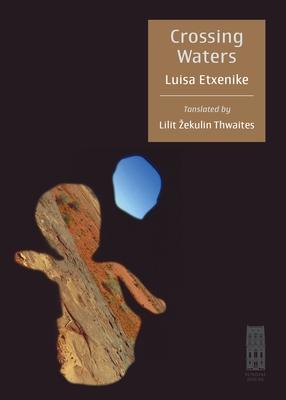Manuela left Colombia a year ago for a coastal town in the Basque region of Spain with her nine-year-old son, Juan Camilo, who has not said a word since they arrived. She is now working as a housekeeper-companion to Irene, a well-known dress designer left blind as the result of an accident. Gradually, as the two women exchange their stories, cope with the boy's silence, and forge a strong friendship, the traumatic events that changed all of their lives emerge, with unexpected consequences. Despite the inherent dangers, Irene continues to swim alone in the ocean each day, attached to a harness of her own making, because "there's more to life than just living." Meanwhile, Manuela and her son each strive to overcome their fears and past experiences so they can begin their lives afresh in their new home, looking to the future rather than the past.
Cruzar el agua / Crossing Waters is a powerful reflection on the need to avoid nostalgia, to move forward, to grow and adapt to new situations and environments. Such impetus dredges up critical elements from the past of each of the three main characters that cannot be suppressed. This adds a powerful dimension to the novel. As in other works by Luisa Etxenike, the images are haunting, and the language is poetic, starkly simple, and meticulously chosen to reflect the different voices and registers of her characters. A confrontation between human nature on the one hand and the forces of nature on the other is ever-present, and the relevant issues Etxenike explores in her prose leave her reader with much to consider, and also to relish.
Manuela left Colombia a year ago for a coastal town in the Basque region of Spain with her nine-year-old son, Juan Camilo, who has not said a word since they arrived. She is now working as a housekeeper-companion to Irene, a well-known dress designer left blind as the result of an accident. Gradually, as the two women exchange their stories, cope with the boy's silence, and forge a strong friendship, the traumatic events that changed all of their lives emerge, with unexpected consequences. Despite the inherent dangers, Irene continues to swim alone in the ocean each day, attached to a harness of her own making, because "there's more to life than just living." Meanwhile, Manuela and her son each strive to overcome their fears and past experiences so they can begin their lives afresh in their new home, looking to the future rather than the past.
Cruzar el agua / Crossing Waters is a powerful reflection on the need to avoid nostalgia, to move forward, to grow and adapt to new situations and environments. Such impetus dredges up critical elements from the past of each of the three main characters that cannot be suppressed. This adds a powerful dimension to the novel. As in other works by Luisa Etxenike, the images are haunting, and the language is poetic, starkly simple, and meticulously chosen to reflect the different voices and registers of her characters. A confrontation between human nature on the one hand and the forces of nature on the other is ever-present, and the relevant issues Etxenike explores in her prose leave her reader with much to consider, and also to relish.